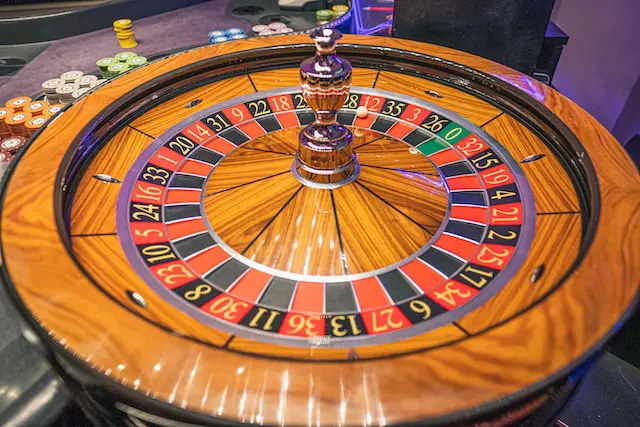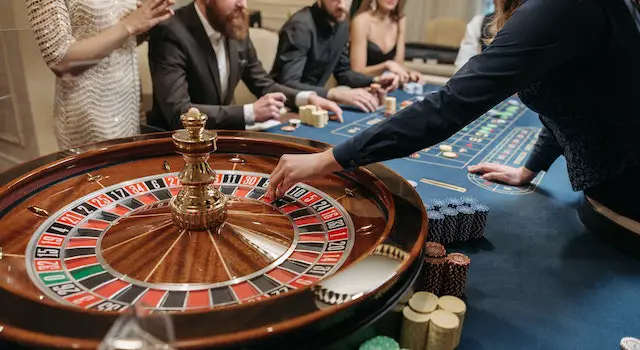Can You Sue a Casino For Not Paying Out?
Yes, you are entitled to sue a casino for not paying out. When entering into a gambling agreement with one, there is an implicit agreement that, should you win, your winnings will be distributed according to the terms and conditions outlined by that establishment. Should the casino fail to honor this agreement and pay out your winnings, you may have grounds for legal action against them. However, it’s important to remember that the outcome of any lawsuit depends on multiple factors, including your circumstances and any local laws and regulations that apply, as well as the terms and conditions agreed upon between yourself and the casino. To take legal action, it is typically wise to consult an attorney specializing in gambling or contract law to assess your case’s merits and help guide you through the legal process. They can offer tailored advice tailored to your situation to identify an optimal course of action.
What Can I Do If The Casino Won’t Pay?
If a casino refuses to pay out your winnings, take these steps to resolve it:
Understanding Terms and Conditions: Before joining any casino, carefully read over their terms and conditions so you have an in-depth knowledge of their payout rules. Pay particular attention to any specific requirements or limitations listed within them that could help determine if any violations occurred concerning casino policies.
Communication with Casino Management: Reach out to the casino’s management or customer service department and express your displeasure with their decision not to pay out the balance owed to you, providing any relevant evidence, such as screenshots or records of gameplay and winnings, to support your claim. Also, keep a log of all correspondence with them, including dates, times, and the names of representatives that responded; this way, all communication can be recorded as evidence against them!
Seek Legal Advice: If the casino fails to respond satisfactorily or ignores your communication, consult with an attorney who specializes in gambling or contract law for advice on your case and potential legal remedies available to you. They may suggest sending an official demand letter outlining all your grievances and the actions they should take in response.
File a Complaint: Depending on your jurisdiction, you may be eligible to file a formal complaint with a regulatory authority that oversees gambling establishments. Provide them with all the details, such as evidence and correspondence with the casino, as well as any laws or regulations it violated. They will investigate and take appropriate action should they find anything out of compliance.
Alternative Dispute Resolution Options: In certain situations, alternative dispute resolution methods like mediation or arbitration may provide an attractive alternative to full-fledged litigation. Mediation and arbitration involve neutral third parties helping facilitate a resolution between you and the casino through mediation or arbitration processes that use third-party mediators as neutral third-party facilitators. These processes tend to be faster and less costly than going to court, but they depend on specific circumstances and both parties agreeing to participate fully.
File a Lawsuit: When all other options have failed or become infeasible, consider filing a lawsuit against the casino. Consult with your attorney on how best to approach this option; they will assist with gathering evidence, filing paperwork, and representing you in court proceedings.
Bear in mind that your actions depend on several factors, including your jurisdiction, local gambling laws, and casino terms and conditions. Speaking with an attorney experienced in such matters can provide tailored advice and increase the odds of successfully resolving this matter in your favor.
Can You Ever Get Your Money Back From a Casino?
Under certain conditions, it may be possible to get your money back from casinos; this depends on several factors. Here are some avenues you should explore:
Valid Complaint or Dispute: Suppose you believe a casino’s actions or policies have caused you financial loss. They have caused a technical malfunction in a game or failed to fulfill their obligations under their terms and conditions agreement. In that case, direct contact should be made with customer service or management to explain your case and present any supporting evidence that might support it.
Chargeback Through Your Payment Provider: Suppose you made a deposit using either credit or debit cards. In that case, a chargeback might be an option if fraudulent activity, unauthorized charges, or your goods or services did not arrive as promised. Contact your payment provider immediately after encountering these problems to see if you qualify for a chargeback; remember that their policies vary between providers, so it’s wise to familiarize yourself with their terms and conditions before initiating one.
Dispute Resolution Services: Some regulatory authorities or gambling commissions offer dispute resolution services to help resolve complaints between players and casinos. Such mediation and facilitation services aim to mediate between both sides involved and facilitate a resolution between them; be sure to research whether any such options exist in your locality and apply to your situation.
Legal Action: If all else fails and you believe your case has merit, legal action against a casino could be your only hope for relief. Consult an attorney experienced in gambling or consumer law to assess its merits and guide you through the legal process. Be mindful that legal proceedings can be lengthy, costly, and unpredictable as outcomes depend on many variables, such as local laws and regulations and the evidence presented against your opponent.
Understanding that there are no guarantees for recovering lost funds is of the utmost importance, as each approach will depend on individual circumstances and local gambling laws in your jurisdiction. Seek legal advice and explore all available options based on your situation before taking the necessary steps to take the best action.
Can a Casino Refuse To Cash You Out For Card Counting?

Yes, casinos can refuse to cash you out if they suspect card counting on your part. Here are some key points for consideration:
Legalities of Card Counting: Though card counting is legal, casinos view it as an unfair form of advantage play and may refuse service to individuals they believe may gain an unfair edge over them by counting cards. Although individuals who engage in card counting do not break any laws by doing so, casinos do have the right to refuse service to anyone they believe might gain an unfair edge against the house through such practices.
House Rules: Casinos typically establish rules and policies about card counting that protect their interests and maintain game integrity. Suppose a casino stipulates in their house rules or terms and conditions that card counting is forbidden and grounds for refusing payouts. In that case, they may enforce them when they suspect players of engaging in card counting activities.
Casinos employ various measures to detect card counters, including trained personnel, surveillance systems, and sophisticated software. Experienced card counters may be able to evade detection; if a casino suspects that one or more players are engaging in card counting, however, they will closely monitor their activities and behavior. Should their suspicions prove correct, they may take appropriate actions against these players (for instance, refusing to cash out winnings).
Casinos are private establishments and, as such, have the right to refuse service to anyone they choose. While casinos must comply with regulations and laws, they have discretionary control over who they serve and under what conditions. If a casino suspects that one or more players are engaging in card counting, they may take steps against that player, including refusing service and withholding payouts.
Potential Consequences: Suppose a casino refuses to cash you out because of your card-counting activities. In that case, legal action may not be viable, as they have every right to enforce their rules and protect their business interests. Furthermore, being labeled as a card counter could result in being banned from future play at that establishment and/or others within its network.
Understanding the rules and policies of any casino you visit is paramount, and casinos generally frown upon card-counting activities. Engaging in such activity could even result in your winnings being refused for cash-out.
How Do I Get My Money Back From Gambling Sites?
Recovering funds from gambling sites may seem impossible, but here are a few steps you can take:
Review Terms and Conditions: Begin by carefully reading the terms and conditions of the gambling site you used, paying close attention to sections covering withdrawals, refunds, and dispute resolution. Get familiar with its policies and procedures regarding financial matters.
Contact Customer Support: Reach out to the gambling site’s customer support and explain your situation, providing any relevant details such as transaction IDs, dates, and amounts involved. Ask them to investigate and offer solutions; maintain a record of all interactions, including dates, times, and personnel names of representatives you speak to during this process.
Dispute with Payment Provider: If your deposits were made using credit or debit cards or third-party payment services like PayPal, such as those offered by Skrill or Neteller, you could dispute them by contacting their dispute resolution process and explaining your situation. Provide supporting evidence, such as conversations with gambling sites or signs of fraudulent activity, that supports your claim; each payment provider has procedures for handling dispute resolution processes. Follow their instructions when responding with any documents necessary for a resolution.
File A Complaint With Regulatory Authorities: If the gambling site is licensed and regulated, you can lodge a formal complaint against them with the appropriate regulatory body. Simply research their jurisdiction of operation before filing formal correspondence outlining all relevant details, evidence, correspondence with them, etc. Once submitted to them, they will investigate further if found to be violating regulations.
Seek Legal Advice: If the steps outlined do not produce results or the amount involved is significant, seek legal advice from an attorney specializing in gambling or consumer law. They can assess the situation, explain your legal options, and guide you through the process. However, please remember that legal action may not always be practical or cost-effective, particularly if the gambling site in question is outside your jurisdiction.
Note that your options and steps depend on many variables, including the terms and conditions, payment method used, the jurisdiction where the gambling site operates, and all necessary documentation gathered to support your case. Seeking legal advice for personalized guidance tailored specifically to your circumstances
Can You Sue a Casino For Not Paying Out Online?
Yes, it is possible to use an online casino without paying out . Here are some key points you need to keep in mind when doing so:
Jurisdiction and Legal Framework: Determine where an online casino operates based on where you reside. Gambling regulations can differ considerably across nations or even within states and regions; research consumer protection legislation that governs online gaming within that jurisdiction to understand your legal options and rights.
Terms and Conditions: Carefully read the online casino’s terms and conditions to understand their payout policies, dispute resolution processes, and any applicable restrictions or limits that could impede play. This serves as a contractual agreement between yourself and the casino and may outline steps you must take should there be a dispute.
Gather Evidence: Gather all necessary evidence supporting your claim, such as screenshots or records of gameplay, communications with casino customer support representatives, and any documentation demonstrating your entitlement to unpaid winnings. Conclusive evidence will strengthen your case and increase its chance of success.
Consult Legal Advice: Consult an attorney specializing in consumer or online gambling law to assess your case, advise on applicable laws, and guide you through the legal process. An experienced attorney will offer advice tailored to your unique circumstances and jurisdiction.
Alternative Dispute Resolution: Some online casinos may provide alternative dispute resolution processes like mediation and arbitration to resolve disagreements without going to court. These processes involve an independent third party facilitating negotiations between you and the casino, so check their policies or customer support to learn about such options.
Legal Action: If all attempts at resolution have failed and you believe you have a strong case, legal action may be the solution. A good attorney will assist with filing legal documents against an online casino and representing your case based on applicable laws and evidence.
As it can be complex, time-consuming, and costly to sue an online casino, the process can be lengthy, time-consuming, and costly. The outcome depends on various factors like applicable laws and regulations, agreement terms, and evidence strengths; therefore, seeking advice from an experienced lawyer to navigate legal hurdles effectively is key to finding an optimal course of action for your situation.
FAQ’s
Can you sue a casino if they refuse to pay out your winnings?
Yes, you can sue a casino if they refuse to pay out your legitimate winnings. Casinos have a legal obligation to honor valid bets and pay out winnings accordingly.
What should I do if a casino denies my winnings?
If a casino denies your winnings without a valid reason, you should gather any evidence you have, such as betting receipts or video footage, and consult with a lawyer specializing in gambling laws to discuss the possibility of filing a lawsuit.
Are there any circumstances where a casino can withhold winnings?
While casinos generally have to honor valid winnings, there may be certain circumstances where they can withhold payouts. These circumstances usually involve suspicions of cheating, fraud, or violation of the casino’s terms and conditions. However, the burden of proof lies with the casino to substantiate their claims.
What steps should I take before considering legal action against a casino?
Before considering legal action, it is advisable to first try resolving the issue through direct communication with the casino’s management. Keep records of all interactions, including emails, letters, or any other relevant communication. If this approach fails, consulting an attorney can help you understand your legal options.
Is it expensive to sue a casino for non-payment of winnings?
The cost of suing a casino for non-payment of winnings can vary depending on various factors, such as the complexity of the case, attorney fees, court filing fees, and other related expenses. It’s essential to discuss potential costs with your attorney beforehand and evaluate whether pursuing legal action is financially viable.
What possible outcomes can result from suing a casino for not paying out?
The outcome of suing a casino for non-payment of winnings can vary. If the court determines that you are entitled to the winnings and the casino acted unlawfully, you may be awarded the unpaid amount along with any additional damages or compensation deemed appropriate by the court. However, the specifics of each case will ultimately influence the outcome.





















